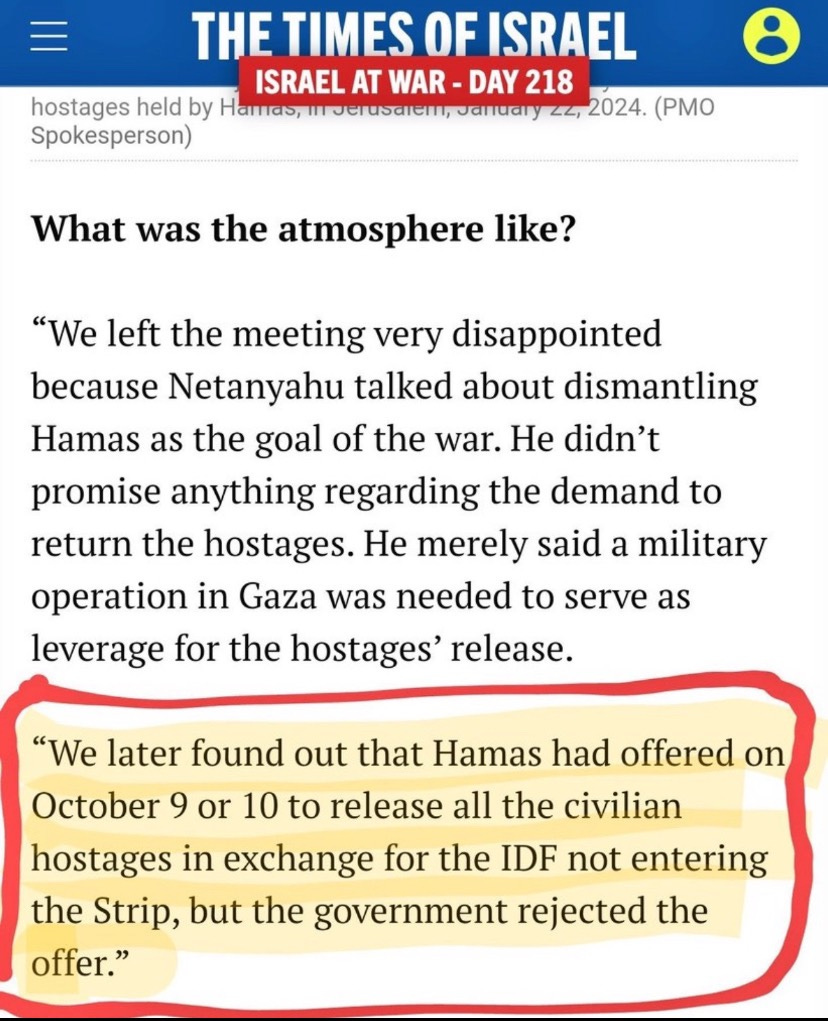Netanyahu’s Linguistic Gymnastics: One Message, Two Languages, Infinite Contradictions and the Question of his Ceasefire Commitment
From Two Languages to Two Messages: How Netanyahu Speaks to Please All but Satisfies None
Benjamin Netanyahu, Israel’s Prime Minister, has long been known for his rhetorical agility. With a career spanning decades, he has mastered the art of delivering different messages to different audiences—sometimes simultaneously. His statements, often tailored to the linguistic and cultural expectations of his audience, reveal a striking pattern of contradictions. This is not merely about translation; it’s about intent. Let’s examine some notable examples of Netanyahu’s strategic messaging and the implications it carries for both domestic and international audiences.
The ‘Nation-State’ Law: Equality for All?
One of the clearest examples of Netanyahu’s rhetorical duality emerged in 2018 with the passage of Israel’s Nation-State Law. Internationally, he presented Israel as a thriving democracy. Speaking in English during a 2019 interview, Netanyahu asserted:
“Israel is the only democracy in the Middle East. Every citizen—Jewish, Muslim, Christian, Druze—has equal rights under the law.”
Yet, in Hebrew, his tone was starkly different. During a domestic appearance, Netanyahu declared:
“Israel is the nation-state of the Jewish people—and only the Jewish people. This is our state. This is our identity.”
This law, which effectively enshrined the Jewish identity of the state, has been widely criticised for sidelining Arab citizens, who make up roughly 20% of Israel’s population. While Netanyahu’s English statements aim to reassure international observers of Israel’s commitment to equality, his Hebrew remarks appeal to nationalist sentiments at home.
Ceasefires: Tactical Pause or Strategic Deception?
The ongoing conflict with Hamas has repeatedly highlighted Netanyahu’s ability to adjust his messaging. For example, during the latest ceasefire discussions (January 2025), Netanyahu told international media:
“Israel is committed to ensuring the safety of its citizens while giving diplomacy a chance to succeed. We are open to a ceasefire if it ensures long-term security.”
However, hours before the ceasefire was set to begin, he addressed the Israeli public in Hebrew, stating:
“This ceasefire is conditional. If Hamas does not meet our terms, we will resume operations immediately. We will not be bound by any agreements that jeopardise Israel’s security.”
This clear divergence raises questions about the durability of such agreements. While Western audiences are encouraged to view Netanyahu as a reluctant but responsible participant in peace negotiations, his domestic audience hears a leader unwilling to compromise.
Two-State Solution: Peace Plan or Political Theatre?
For years, Netanyahu has publicly voiced support for a two-state solution in English, often in response to international pressure. At the United Nations in 2016, he said:
“I remain committed to a vision of two states for two peoples, living side by side in peace and security.”
However, in Hebrew, his rhetoric often dismisses the idea outright. In 2019, speaking to members of Likud, he remarked:
“A Palestinian state will never be created under my watch. It is a fantasy that undermines our security and our future.”
Netanyahu’s contradictory statements reflect his political tightrope walk: appearing conciliatory to global powers while assuring Israeli hardliners that he will not compromise on their vision of Greater Israel.
Invoking the Bible: History or Strategy?
Netanyahu’s references to the Bible often carry dual meanings. In English, he frames these allusions as historical context. For example, during a speech to the US Congress in 2015, he said:
“Israel’s fight against terror is as old as the story of David and Goliath. We are a people who have fought for our survival throughout history.”
In Hebrew, however, these references can take on a more incendiary tone. During a 2023 address, he described Hamas as the modern-day Amalekites, an ancient enemy of the Jewish people:
“Just as our ancestors dealt with Amalek, we must deal with Hamas—decisively and without hesitation.”
While the biblical narrative resonates deeply with Israeli audiences, critics argue that such language risks inflaming tensions, framing modern conflicts in ancient, existential terms.
The Holocaust Speech: Subtle Divisions
On the eve of Holocaust Memorial Day in 2023, Netanyahu shared a survivor’s words, telling international audiences:
“We must never forget the horrors of the Holocaust and the importance of standing together against hate and intolerance.”
However, addressing an Israeli audience in Hebrew, he quoted the same survivor with a significant addition:
“He told me, ‘Non-Jews cannot be trusted. Only we can protect ourselves.’”
While Netanyahu stopped short of endorsing the sentiment, the inclusion of this remark sparked debate. Critics accused him of perpetuating distrust among communities, while supporters defended it as a reflection of historical realities.
Israeli hostages:
As for his many statements about Israeli hostage retrieval, the supposed “main aim” in the preceding months after Oct 7, 2023, well I can’t even be bothered to compare the differences, they were all BS. The quote below from The Times of Israel speaks for itself. In this case, Netanyahu’s messages to all parties were all disingenuous to his real intentions and priorities.
For context, the full Time of Israel article this was taken from is available to read in full Here.
As the world watches the latest ceasefire unfold, one cannot ignore the impeccable timing of its implementation—just days before Donald Trump’s much-anticipated inauguration as U.S. President. The timing raises an eyebrow (or two): is this a genuine step towards peace, or a strategic gesture to curry favour with an incoming administration? Netanyahu’s government, ever attuned to global optics, might be hoping the celebratory and media buzz surrounding Trump will overshadow any potential collapse of this fragile agreement. Once the confetti settles and the spotlight shifts, will this ceasefire hold—or was it always intended as a fleeting public relations exercise?
The Pattern of Contradiction
Netanyahu’s rhetorical strategy is not merely about translation—it is about crafting narratives that suit the audience. To international ears, he tries to come across as a statesman advocating for democracy, peace, and tolerance. To Israelis, particularly his right-wing base, he is a protector of Jewish identity, a hardliner who will not compromise on security.
Yet, it’s important to note that not all Jews—either in Israel or the global diaspora—share Netanyahu’s vision of unwavering hardline policies or his interpretation of Jewish identity. Many find his rhetoric alienating and feel that his actions often perpetuate division and exacerbate conflict rather than resolve it. Many Jewish organisations like J Street, the Jewish Council of Australia and numerous prominent Israeli commentators frequently emphasise, that his approach does not represent the values or aspirations of large segments of Jewish communities worldwide. For these individuals, Netanyahu’s self-appointed role as the “guardian” of Jewish identity is less a source of pride and more a source of frustration.
This duality is not without consequence. It undermines trust, both at home and abroad, and raises questions about Netanyahu’s true intentions. Can a leader who speaks out of both sides of his mouth effectively guide a nation in an increasingly polarised world?
References:
Al Jazeera: “Netanyahu calls Israel the nation-state of the Jewish people”
Haaretz: “Israel’s ceasefire agreements are conditional, says Netanyahu”
The Times of Israel: “Netanyahu rejects Palestinian state in closed-door meeting”
NPR: “Netanyahu’s biblical references spark debate”
The New Yorker: “The contradictions of Netanyahu’s leadership”1. Benjamin Netanyahu: Israel is a state ‘only of the Jewish people’
Al Jazeera: Hamas releases names of 3 captives to be freed under Gaza …
Al Jazeera: Israel’s Netanyahu reiterates rejection of Palestinian state after Gaza …
NPR: Netanyahu’s References to Violent Biblical Passages Raise Alarm Among Critics
Weaponising Fear: Benjamin Netanyahu’s Political Toolkit and its Devastating Global Impacts
Benjamin Netanyahu’s political career has been defined by a singular ability to wield fear and division as tools for personal and political gain. From associating Arab populations with existential threats to manipulating the collective trauma of the Holocaust, Netanyahu has consistently leveraged insecurities—both Jewish and global—to solidify power. In…








Zionists moved from apartheid to ethnic cleansing in Gaza in 2024. Hundreds of thousands of women and children killed, maimed and made homeless by Israel. Never forget.
I am a Catholic and four of my brothers and I served active duty US military. I am not an anti-Semite but I am anti-genocide.
Excellent analysis, James!